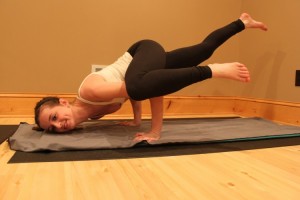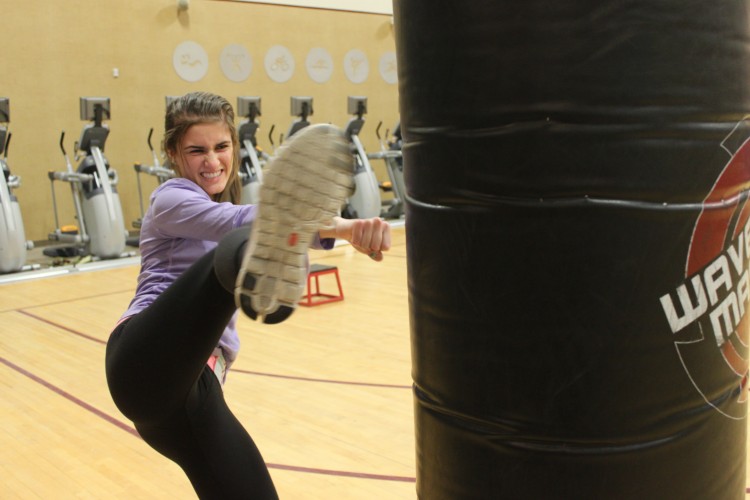Teens struggle to define healthy workout habits
Students, like senior Kaitlin Duda, work out through classes and opportunities at local fitness centers.
During high school years, exercise can be different for each individual. Some students work out almost every day, while others haven’t exercised in longer than they can recall. Many teenagers simply do not know how often they should be working out, so they go from one extreme to the other.
According to Jenna Kuhlman, a personal trainer at Lifetime Fitness, teenagers should have three to four days of cardio training and one or two days of strength training every week. “You definitely need at least two rest days to stay healthy and strong, because then you can go harder the next day.” Jenna Kuhlman said.
Some teenagers overwork themselves, “I work out at least once a day for one or two hours,” sophomore Xandi Swedberg said. This type of exercise is too much for teenagers’ bodies. “If you don’t have some rest days you aren’t improving any more, you’re only straining your muscles” Kuhlman said. Even though working out always burns calories, every person needs a variety of workouts as well as relaxation time to remain healthy.
Some students work out regularly, but only because they have sporting events that force them to do so. “I play soccer, basketball, and golf for school. I usually don’t work out when I’m not playing for school, though,” sophomore Sofie Scott said. Although this may seem healthy, it is important to continue a regular workout routine during the off-season.

“Off season training increases stamina and will improve your heart throughout your life, while working out [only] throughout the year can actually hurt you,” Jenna Kuhlman said. Even if someone plays a sport every season, the individual should still incorporate more regular exercise to reduce injuries and improve bone strength.
Many stereotypes exist about boys training habits in comparison to girls’. A common belief exists that boys can and should strength train more than girls, however, this is not the case. “Although the amount of weight being lifted will surely be different in boys and girls, the duration and intensity should all be the same,” Kuhlman said. Some trainers even believe that when it comes to duration in weightlifting, women by far overpower men.
For students who do not usually work out and want to start, Kuhlman recommends to start slow and work up to a healthy exercising schedule. “Begin with one or two days a week to start. Don’t go hard right away. Take it slow then gradually work up to a routine of three to four days a week,” Kuhlman said. Part of high school is discovering what is healthy and what is not. Right now, most students are just experimenting with exercise and personal fitness. Knowing the healthy amount of working out right now is vital to students’ optimal well-being for the rest of their lives.




































![Teacher Lore: Mr. Hillman [Podcast]](https://bsmknighterrant.org/wp-content/uploads/2025/03/teacherlorelogo-1200x685.png)





